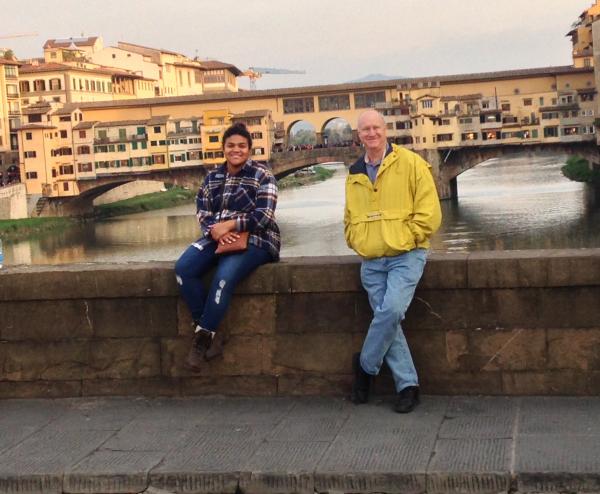As I’m writing this, I’m struggling to beat off the last lingering vestiges of an upper respiratory infection at my volunteer placement at a birth clinic in Bali. It took me 32 hours of traveling to get here. I have felt miserable for the past four days or so. It’s hot here. It’s sticky and humid and I feel a bit like a petri dish of infection, rashes and bug bites.
Prior to heading out for Bali—a trip that’s been in the works for me for almost a year—I had been couchsurfing, seeing old friends for the first time in half a decade, trying to figure out the headaches of visas and international plug adaptors, and figuring which pair of flow pants I could wear at a conservative birth centre in the middle of a hot tropical island. As part of a homework assignment due smack in the middle of that craziness, I had to write a three-day diet diary. My results were embarrassing—a few bites of crackers here and there, lots of coffee. . .it’s no wonder that I’m sick!
I don’t think this is an uncommon scenario amongst aid workers and volunteers. Sometimes, we’re so busy trying to arrange the care of others, we forget to care properly for ourselves. It was the same when I went to Zambia nearly 10 years ago. I kept pushing off getting care for my bout of amoebas (nasty bacteria that conjure all sorts of havoc on your digestion), figuring I didn’t have the time to leave the refugee settlement for a trip to town, or that in the grand scheme of things, my suffering was relatively puny compared to the refugees I was working with each day.
Remember, a burnt-out volunteer is of no help to anyone.
Bali often stirs thoughts of Eat, Pray, Love style self-reinvention. There’s spas scattered amongst the palms bending toward the deep blue ocean. There are almost as many Roxy stores as there are street vendors. Though I’ve dipped my toes in the sand and drank my share of lychee soda already, I’m not in Bali for a relaxing spa vacation. I’m here to volunteer at a busy birth centre in heart of the main city. That doesn’t mean that I can’t take care of myself and if I let this infection linger, I’m going to have a miserable 10 weeks here and will be of no help to anyone.
So how do volunteer and aid workers find balance with their gruelling work and appropriate self-care?
One crucial component is eating right. Depending on where you are working, this might be easier said than done. Fresh fruits and veggies might be hard to come by and in many regions of the world, so much of the food is overly processed and hardly nutrient dense. It might be critical for you to take with you some supplements and/or some green or protein powders. You might not typically be a juice or milk drinker, but if you can find these luxuries in the markets, they might be a huge boost to your wellbeing. Try not to let yourself get so burnt-out that you ignore your nutritional health, as that’s a fast-track to cyclical issues of infection and fatigue.
Try to bathe often. Cold bucket showers are no fun, but they are an important step toward staying healthy. They can also serve as some valuable private time to centre your thoughts and tune into what’s happening in your body. If the cold water is unbearable, see if you can heat up some hot water on a fire or stove to add to it.
Make sure to keep your hands clean, even if access to water and soap is difficult at times. My team leader in Zambia told us that one of the most important things he learned from his time in the Peace Corps was “don’t eat shit.” It was a reminder to wash your hands and your body all the time to keep clear of weird infections.
Give yourself a time out. Sometimes, all you need is to simply remove yourself from the program for a little bit. Go take a walk, meditate, go for a run, write a letter to someone back home, put your headphones in and listen to some music alone, whatever works for you to feel balanced and refreshed enough to start another day fresh in the field.
You are there to serve and chances are your motivations for volunteering abroad are noble and sincere. Those points are why it sometimes feels weird to want to do something good for yourself while away. Remember, though, a burnt-out volunteer is of no help to anyone, so you need to make sure you do take some time to take care of your personal well being.
Add this article to your reading list




